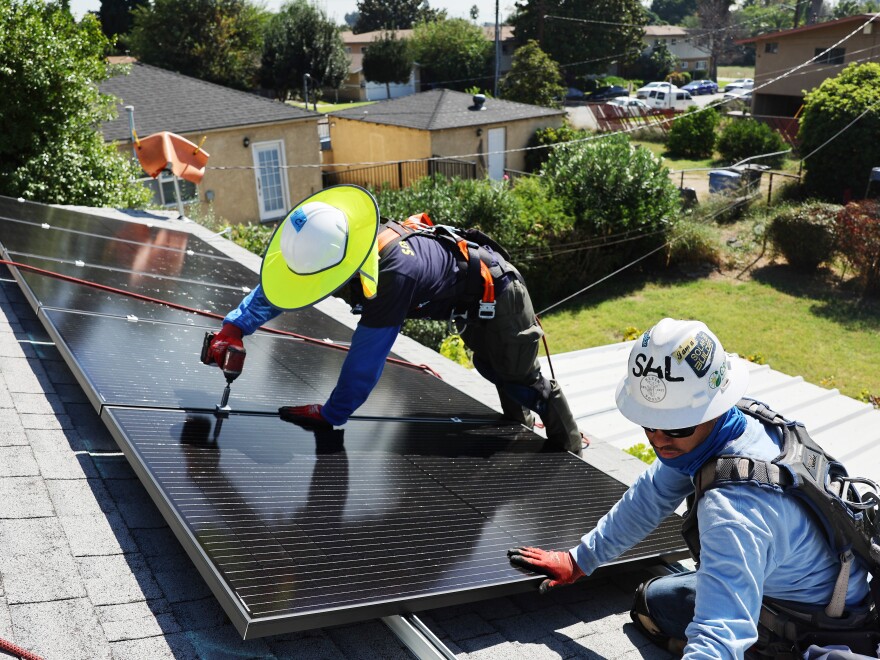The Trump administration has announced that it will discontinue a $7 billion initiative to provide inexpensive solar energy to low-income regions and homes. The action is a component of President Trump’s attempt to undo the climate plan of former President Biden and promote fossil fuels in its place.
The goal of the “Solar for All” program was to assist over 900,000 low-income households in lowering their utility costs and pollution. Efforts nationwide to install battery storage, community solar farms, and rooftop solar panels were supported by Solar for All.
The Trump administration claims that the program’s future is now in doubt due to the tax and budget deal that Republicans passed last month.
According to a social media post by Lee Zeldin, the administrator of the Environmental Protection Agency, the new law eliminates “the Greenhouse Gas Reduction Fund, including a $7 billion program called Solar for All.” Zeldin provided no information on when or how the initiative would be discontinued.
State agencies such as the Michigan Department of Environment, the West Virginia Office of Energy, and the Kentucky Energy and Environment Cabinet had already been obligated the Solar for All funds. The organizations then awarded funds to installers and project developers themselves, as well as to lending organizations that finance solar and battery projects. Organizations devoted to expanding solar for native communities also received some cash. Additionally, certain funds were used for multistate solar initiatives such as Grid Alternatives.
Grantees contend that the Trump administration cannot now recoup the funds because they were deemed obligated.
Speaking with grantees, Jillian Blanchard, vice president of climate change and environment justice at Lawyers for Good Government, says, “We and many others are prepared to take them to court.” The new statute, according to Blanchard, “rescinded only a much smaller portion of money of unobligated funds.”
Assisting low-income homes is a fundamental component of the Solar for All program.
Having solar “essentially means that people can have more money to pay for other essential needs, like healthcare and food.” which are both seeing price increases at the same time,” according to Sanya Carley, a University of Pennsylvania energy policy professor.
“By removing this program, a program that was designed specifically to help low and moderate income households, it essentially means that these households won’t be able to benefit from these reduced bills,” Carley explains.
Colorado’s Solar for All program received 156 million dollars from the EPA a year ago. More than 20,000 more Coloradoans would have access to solar electricity as a result, according to the governor’s office.
Democratic Governor Jared Polis issued a statement saying, “The Trump Administration is trying to take cost-cutting solutions away from hardworking Coloradoans and push us backwards into an over reliance on non-renewable resources.”
Biden’s EPA had projected that the program would save low-income households nationwide more than $350 million annually on their electric costs. Additionally, community and rooftop solar can assist homes in avoiding power outages, which can be hazardous during periods of extreme cold or heat.
According to Costa Samaras, director of Carnegie Mellon University’s Scott Institute for Energy Innovation, the Solar for All program and the nation’s solar installations would have resulted in a major reduction in greenhouse gas emissions. “We need all the clean power we can get right now,” he states.
Copyright 2025 NPR






